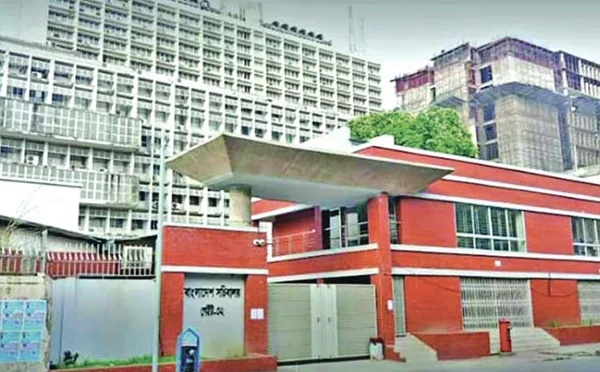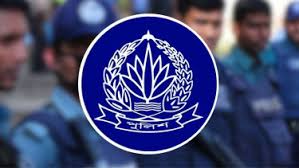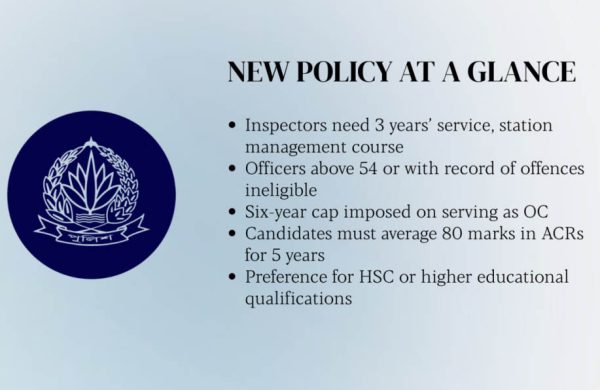Govt moves to restore order in public service
- Update Time : Sunday, July 27, 2025

TDS Desk:
A year after the July Uprising laid bare the disarray within public administration, the government is intensifying efforts to restore order through a series of tough reforms aimed at strengthening institutional discipline and accountability.
Since the interim government assumed office in August last year, officials at various levels of the civil administration have engaged in rallies, sit-ins, human chains, and “pen break” protests, particularly in response to the restructuring and division of the National Board of Revenue (NBR).
The government has responded with disciplinary action against those participating in such movements.
Senior Secretary of the Ministry of Public Administration Mukhlesur Rahman told journalist that the government is maintaining a firm position on disorderly conduct by officials.
“Chief Adviser Prof Muhammad Yunus has directed a strict stance on such issues. From now on, if any government official or employee engages in unjustified movements against the government, legal action will be taken,” he said.
He mentioned that the administration is adhering to a ‘zero tolerance’ policy to ensure transparency and accountability in the civil service.
Mukhlesur Rahman said this is the government’s most serious effort yet to restore discipline ahead of the elections.
UNREST AND ECONOMIC IMPACT
Over the past year, employees of NBR, various ministries and field administrations have staged frequent demonstrations.
These included sit-ins, rallies, and symbolic work stoppages in protest, particularly over the proposed restructuring of the NBR.
The unrest has negatively affected revenue collection, disrupted trade operations and complicated customs and supply chain processes, causing significant losses for businesses.
Tensions peaked when protesting NBR officials reportedly tore up two recent transfer orders, denouncing them as retaliatory and oppressive.
In response, the government has temporarily suspended 14 officials recently.
The Anti-Corruption Commission (ACC) has also launched an investigation into several officials.
SOCIAL MEDIA MONITORING AND CAUTIONARY MEASURES
In parallel, the Ministry of Public Administration has issued a directive to all ministries, departments and local administrative bodies, urging officials to exercise caution on social media.
The circular warned that misconduct on digital platforms could violate multiple regulations, including the Government Servants (Conduct) Rules, 1979, the Guidelines for the Use of Social Media in Government Institutions, 2019, and the Government Servants Discipline and Appeal Rules, 2018.
Officials were reminded that unauthorised social media activity could compromise national security, damage the integrity of the civil service and result in disciplinary action as per existing government service laws.
The directive mandates strict adherence to the 2019 guidelines and empowers authorities to take legal measures against violators to uphold decorum in public service.
MANDATORY INVESTIGATION
Amid ongoing administrative unrest and employee agitation in the secretariat, the government has approved a series of flexible amendments to the Government Services (Second Amendment) Ordinance, 2025 to ensure due process in disciplinary actions.
Under the new provisions, it is now mandatory to form a three-member investigation committee before taking disciplinary action against any government employee.
A show-cause notice must be issued within seven days of receiving a complaint, and a decision must be made within seven working days of the employee’s response.
Besides, the previous provision allowing punishment solely on the basis of notice has been scrapped.
Meanwhile, the Advisory Council of the interim government has given in-principle approval to the draft of the ordinance, which builds on the earlier Government Services (Amendment) Ordinance, 2025, issued on 25 May.
KEY CHANGES IN LAW
The new amendment adds due process and clarifies what constitutes misconduct.
According to the law, an employee may be punished for acts that include:
Disobeying superiors or inciting others to disobey
Disrupting administrative discipline
Abstaining from duties without leave or valid reason, individually or collectively
Inciting others to abstain or obstructing colleagues from performing duties
Under the updated ordinance, which was formally issued on 23 July and signed by Dr Hafiz Ahmed Chowdhury, secretary of the Legislative and Parliamentary Affairs Division, a government employee found guilty of such misconduct, including striking or obstructing others from working, may face compulsory retirement or dismissal.
REFORMS IN PROMOTION
The government has also taken steps to address long-standing grievances related to inequality in promotions and postings. For the past 17 years, certain officials, particularly those politically deprived, have allegedly been overlooked.
To minimise these imbalances, a Public Administration Reform Commission has been formed to address intra-cadre discrimination. In response to the recent secretariat strike, new appointments are also being made by integrating cadre and non-cadre roles.
The government has additionally introduced new privilege rules for public servants and compiled a list of secretariat officials from field-level administration.
EXPERT INSIGHTS
Commenting on the developments, former Secretary and public administration expert Abdul Awal Majumder told journalist, “There can be no ‘softness’ when it comes to restoring discipline in the administration. Without strict accountability, it’s impossible to curb corruption or negligence among those who hold the reins of the state.”
He mentioned that while some critics view the special provisions of the 1979 conduct rules as draconian, they are necessary under the current circumstances.
“The government can dismiss employees who are absent from work with just an eight-day notice—no PSC opinion or investigation needed,” he added.
While he welcomed the government’s strict approach, Majumder stressed that enforcement was key.
“Too many laws, circulars and committees have been created in the past without meaningful follow-through. Real success will depend on implementation and transparency, not paperwork,” Majumder added.

















